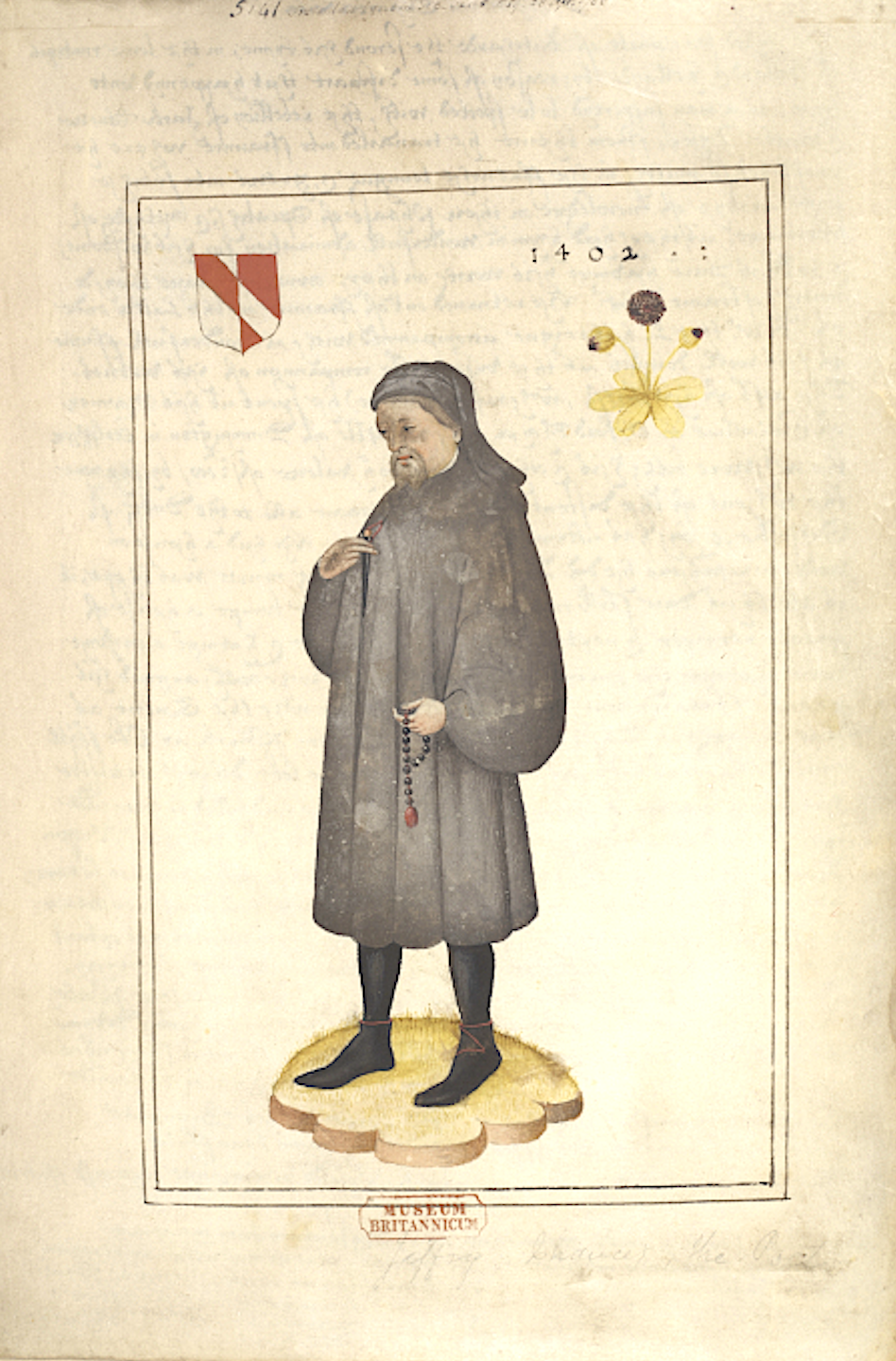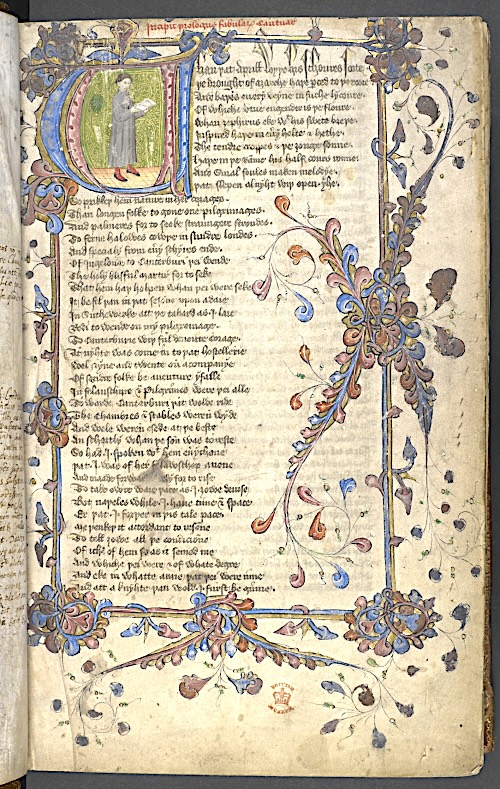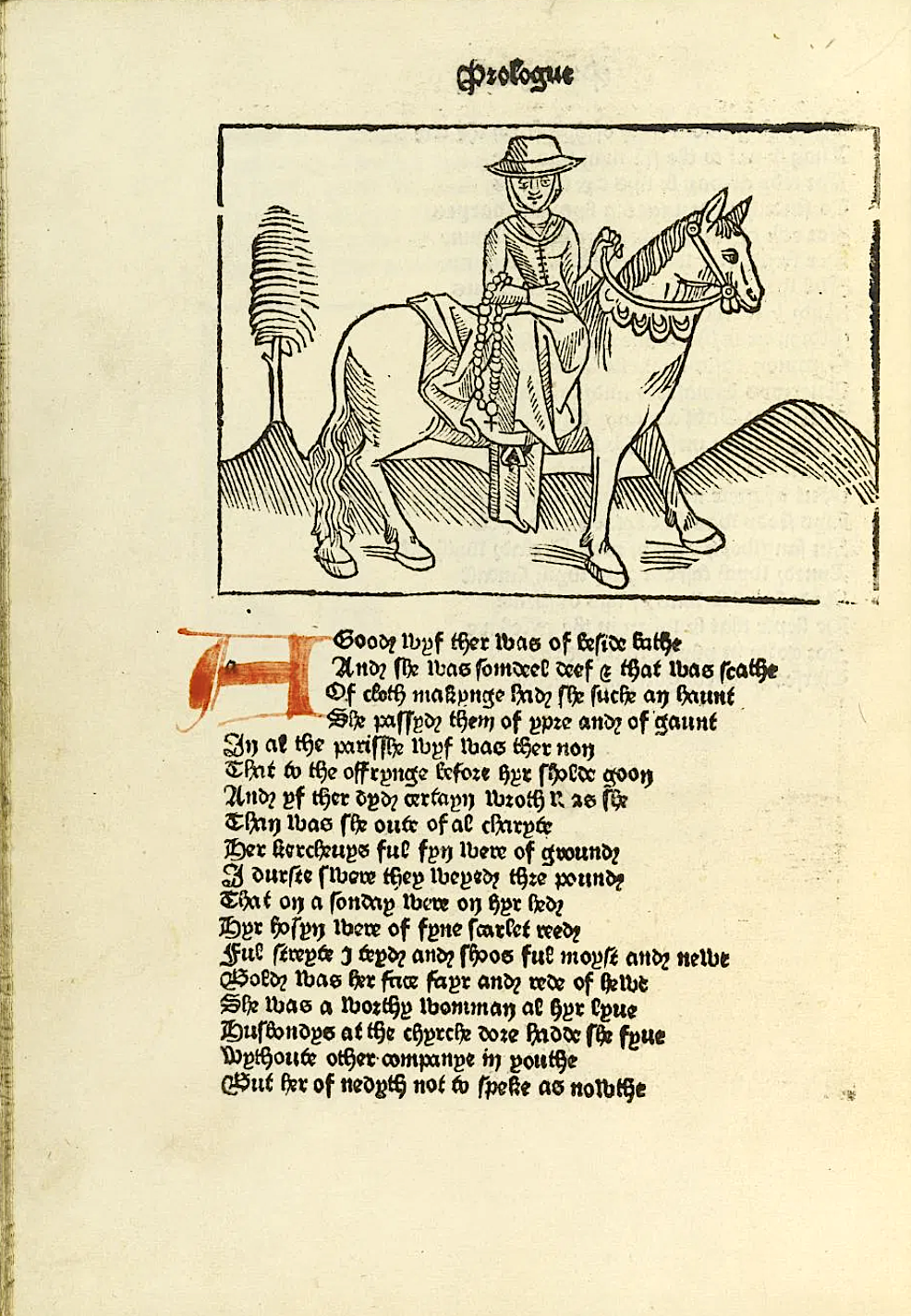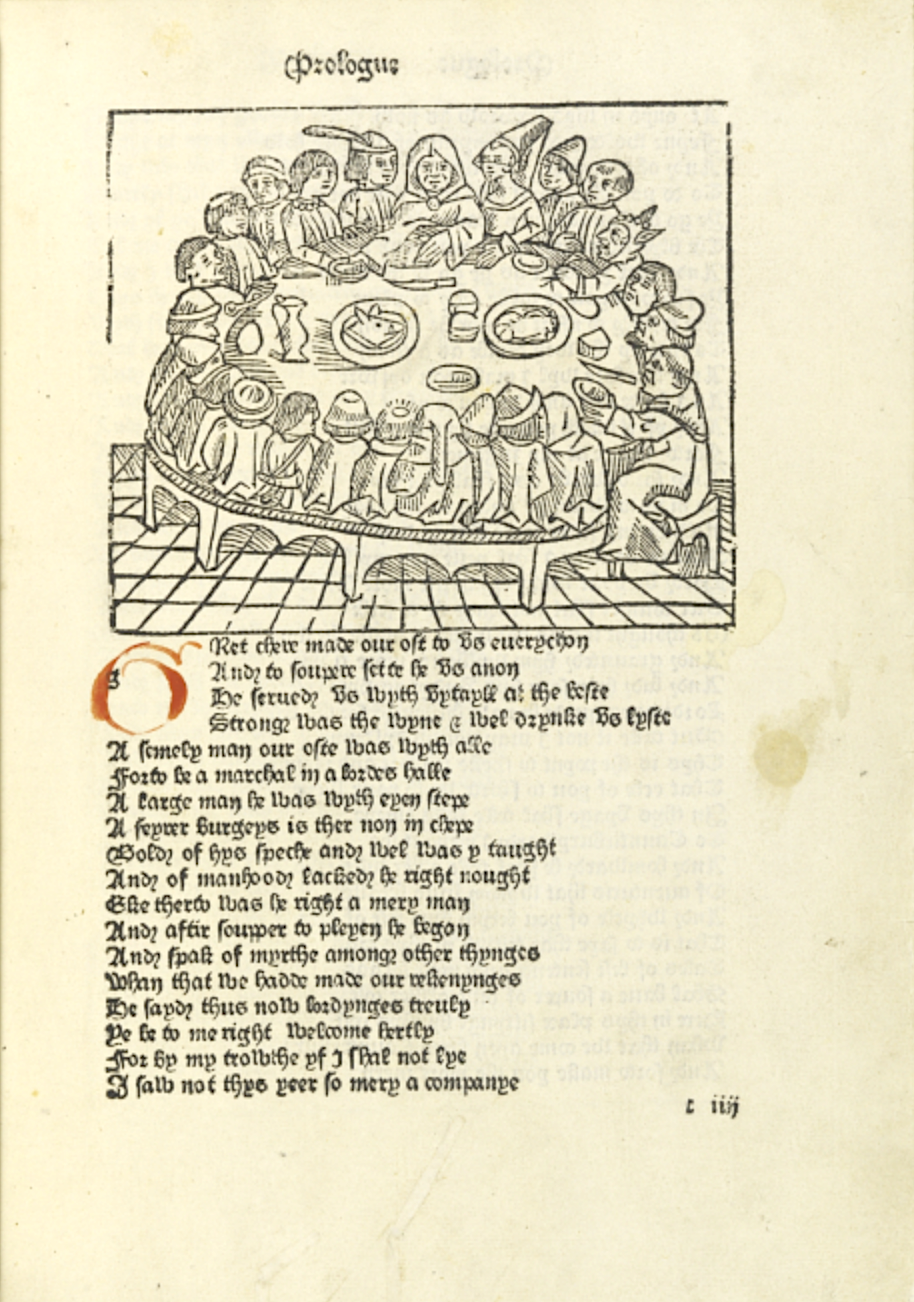
Earlier this year, Oxford professor of English literature Marion Turner published The Wife of Bath: A Biography. Even if you don’t know anything about that book’s subject, you’ve almost certainly heard of her, and perhaps also of her traveling companions like the Knight, the Summoner, the Nun’s Priest, and the Canon’s Yeoman. These are just a few of the pilgrims whose storytelling contest structures Geoffrey Chaucer’s fourteenth-century magnum opus The Canterbury Tales, whose influence continues to reverberate through English literature, even all these centuries after the author’s death. In commemoration of the 623rd anniversary of that work, the British Library has opened a vast online Chaucer archive.

This archive comes as a culmination of what the Guardian’s Caroline Davies describes as “a two and a half year project to upload 25,000 images of the often elaborately illustrated medieval manuscripts.” Among these artifacts are “complete copies of Chaucer’s poems but also unique survivals, including fragmentary texts found in Middle English anthologies or inscribed in printed editions and incunabula (books printed before 1501).”
If you’re looking for The Canterbury Tales, you’ll find no fewer than 23 versions of it, the earliest of which “was written only a few years after Chaucer’s death in roughly 1400.” Also digitized are “rare copies of the 1476 and 1483 editions of the text made by William Caxton,” now considered “the first significant text to be printed in England.”

Four centuries later, designer-writer-social reformer William Morris collaborated with celebrated painter Edward Burne-Jones to create an edition W. B. Yeats once called “the most beautiful of all printed books”: the Kelmscott Chaucer, previously featured here on Open Culture, which you can also explore in the British Library’s new archive (as least as soon as its ongoing cyber attack-related issues are resolved). As its wider contents reveal, Chaucer was the author of not just The Canterbury Tales but also a variety of other poems, the classical-dream-vision story collection The Legend of Good Women, an instruction manual for an astrolabe, and translations of The Romance of the Rose and The Consolation of Philosophy. And his Trojan epic Troilus and Criseyde may sound familiar, thanks to the inspiration it gave, more than 200 years later, to a countryman by the name of William Shakespeare.

Related content:
Behold a Digitization of “The Most Beautiful of All Printed Books,” The Kelmscott Chaucer
40,000 Early Modern Maps Are Now Freely Available Online (Courtesy of the British Library)
Based in Seoul, Colin Marshall writes and broadcasts on cities, language, and culture. His projects include the Substack newsletter Books on Cities, the book The Stateless City: a Walk through 21st-Century Los Angeles and the video series The City in Cinema. Follow him on Twitter at @colinmarshall or on Facebook.


Thank you for this.